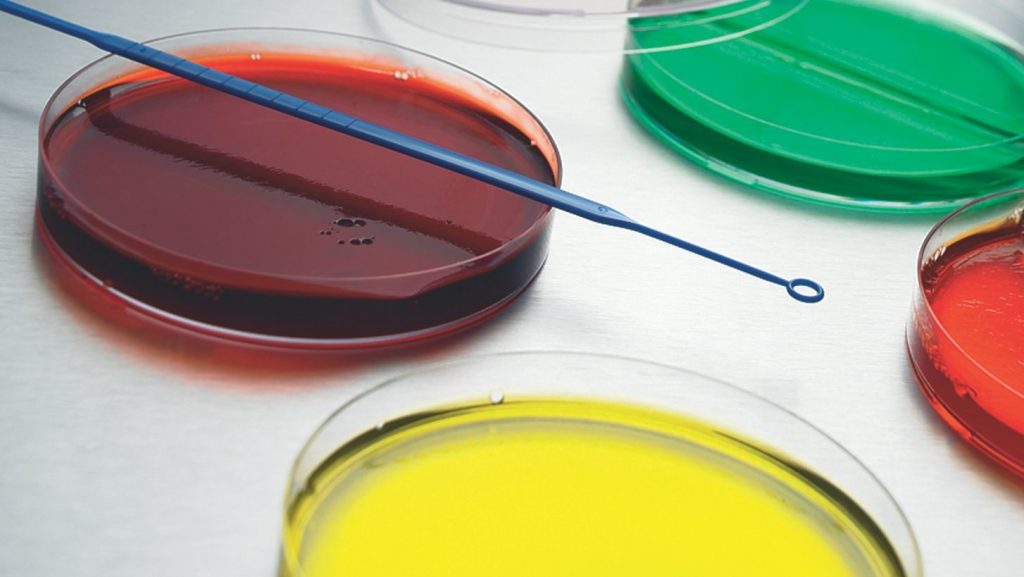Microbiology

Whether you’re interested in microbial diversity, basic cellular processes, interactions between microbes or viruses and their hosts, or any number of interdisciplinary microbiology areas involving food safety, bioenergy or the environment, microbiology and its various focus areas provide many dynamic and exciting research opportunities.
Numerous opportunities exist for careers in academic and industrial research, teaching, government service and many other areas in which microbiology has an impact. A strong undergraduate record in the life or physical sciences, supported by some exposure to a research experience, will prepare you for the NC State Microbiology graduate program, giving you the professional training to launch your career.
Learn more about the program in Microbiology.
Degrees
Master of Microbiology (Non-thesis)
The Microbiology Graduate Program offers the non-thesis Master of Microbiology (M.M.) degree. This degree is frequently sought by individuals employed in the local biotechnology industry and by pre-professional students. In general, those who are interested in expanding their familiarity with Microbiology through courses and do not wish to pursue research training find this program of interest. Students who desire a research-intensive program are encouraged to apply to the M.S. or Ph.D. degree programs.
Master of Microbial Biotechnology
The Master of Microbial Biotechnology degree program at N.C. State University represents one of the first and most successful Professional Science Master’s programs in the country. Coupling innovative graduate science training with MBA-level business coursework, the MMB experience promotes strong transitions into bioscience careers. The university sits near Research Triangle Park, one of the country’s largest hubs for biotechnology and innovative research, and the MMB program draws upon interactions with bioscience industry companies in RTP and elsewhere to offer students highly relevant bioscience industry practicum projects and internships. The MMB program further offers students an opportunity to earn an MBA degree after an additional year of study!
The Master of Science (M.S.) curriculum provides motivated individuals the opportunity to develop an in-depth understanding of microbiological processes and to emerge from the program with the skills for making valuable contributions to research, education and biotechnology endeavors. Students are educated in research systems and in communicating science to colleagues and the public.
The Doctor of Philosophy (Ph.D.) is the highest degree offered by the Microbiology Graduate Program. The goal of graduate education in the MGP is to provide students with the foundation necessary to pursue a career in a university, industry or research institute setting. Students are trained to recognize significant biological problems, to design experimental approaches for solving these problems, and to communicate their results to the scientific community and the public. The Ph.D. program presented below is intended for timely completion of the required course work, examinations, research, and an approved dissertation.
Admission Requirements
Read more about applying to the Microbiology program.
Student Financial Support
Many graduate students receive stipend and tuition support through research grants, teaching assistantships, industry internships or other sources. Support cannot be guaranteed in all cases. However, we urge potential applicants to consider their research and academic interests and to contact the faculty in those areas or the director of the specific degree program they wish to pursue.
Participating Faculty
Graduate Faculty in Microbiology conduct research in diverse areas across the NC State campus.